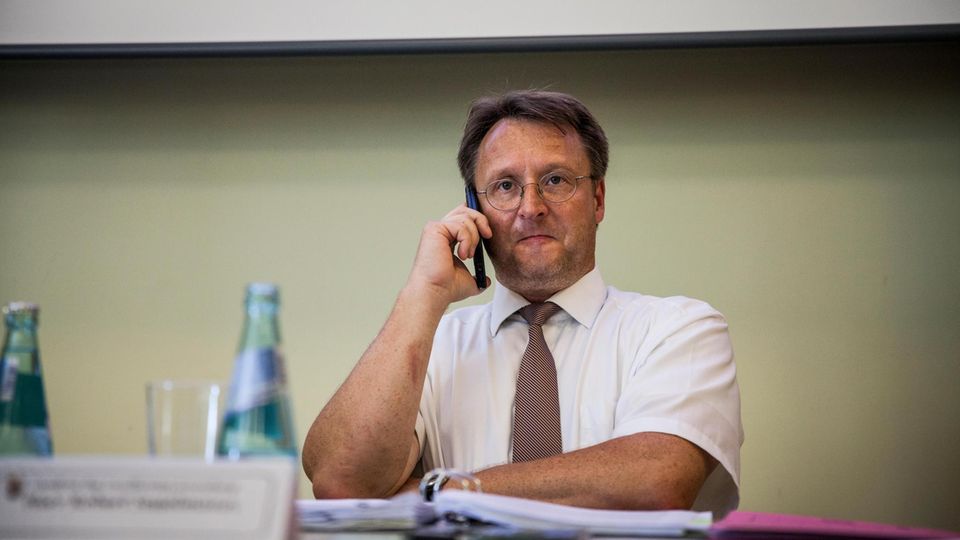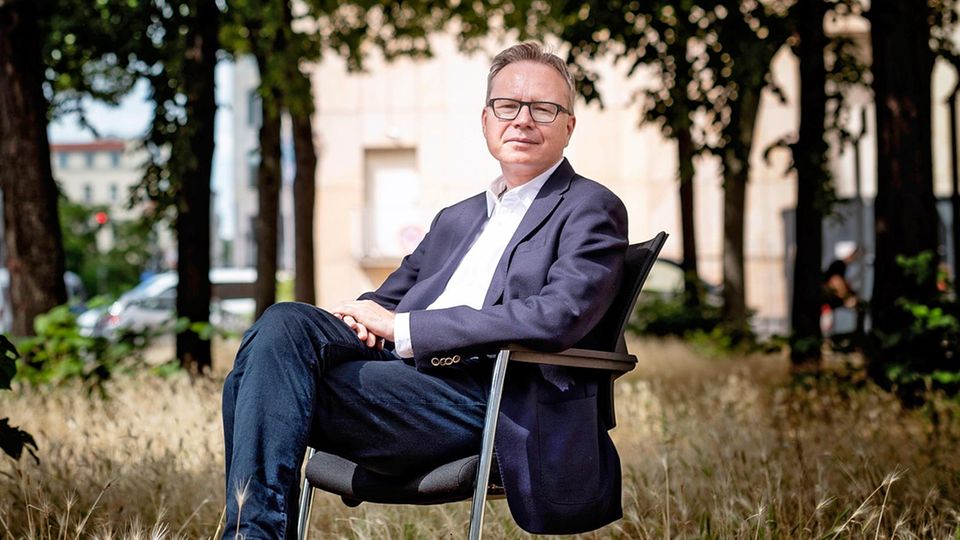Opinion
Defeat in Nordhausen
The rise of the AfD is by no means unstoppable
AfD candidate Jörg Prophet did better in the mayoral election in Nordhausen, Thuringia
© ddp
The AfD surprisingly lost the mayoral election in Nordhausen, Thuringia. It is worth studying the case carefully.
The American artist Andy Warhol once spoke of 15 minutes of fame. In the modern media society, these would be available to everyone in the future. The Thuringian medium-sized town Nordhausen is a political example of this phenomenon.
The election of its new mayor has momentarily catapulted the town of 41,000 into the center of nationwide interest. Or to be more precise: the fact that in the first round on September 10th, the AfD candidate Jörg Prophet was ahead of the incumbent Kai Buchmann.
A third victory for the AfD in a row seemed to be on the horizon: first, in Sonneberg, Thuringia, Robert Sesselmann became the AfD’s first district administrator. Then his party colleague Hannes Loth became mayor of Raguhn-Jeßnitz in Saxony-Anhalt. So now Nordhausen, or so many people thought.
Since Sunday evening we have known that a quip from the poet Wilhelm Busch applies to Nordhausen: “But here, as in general, things turn out differently than you think.” The AfD candidate lost.
The AfD’s initial conditions were actually good
Some are now warning not to overestimate the surprising defeat. She fears that anyone who makes it too big will only play into the hands of the AfD.
That’s wrong. The attempt by many media outlets to keep the AfD down by ignoring it has failed, as current surveys show. That’s why it’s right to pay more attention to the AfD. However, even if something doesn’t work out for the right.
Nordhausen was stylized by the AfD as a symbol that its march to power can no longer be stopped. Now the location serves as counter-evidence. The rise of the AfD is by no means unstoppable.
The right-wing populists in Nordhausen seemed to have ideal starting conditions. The incumbent was controversial; his AfD challenger had made a name for himself as a businessman. And he knew that Comrade Trend was on his side. In surveys, the party is currently achieving new record results in East Germany and is the second strongest force after the Union.
The AfD could not slip into the role of martyr
Why did things turn out differently? There was no unified call from the other parties against the AfD. Which made it difficult for him to slip into the usual martyr role. At the same time, large parts of civil society objected to their city being represented by an AfD man in the future. Numerous associations and private individuals made it clear in the joint initiative “Nordhausen Together” that they did not want to have anything to do with a politics of division.
Of course, Nordhausen does not offer blanket solutions for dealing with the AfD either. At least 45 percent of voters voted for the AfD candidate in the second round. The gap that is emerging here will not disappear overnight.
Perhaps the most important lesson from the mayoral election in Nordhausen is something else: that we have to stop only being interested in Warhol’s 15 minutes for places and regions in which social changes are particularly clear. It would be much more important to continue to look after the election. How are people dealing with the division now? What is needed for reconciliation? What lessons do the old and new mayors draw from the events?
Next year, a new parliament will be elected in more than just three eastern German states. Local elections also take place in nine, and they are often not just an indicator of local sensitivities, but of the mood in the country. Anyone who shows more interest and a longer attention span in advance will not be caught off guard on election evening.



